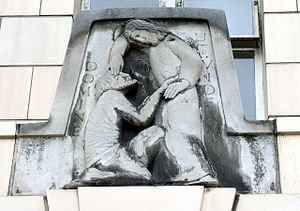Richard Carrier has compiled a “summary of the current state of the debate after the mini blog war between [himself] and Bart Ehrman over his latest book, Did Jesus Exist?, which attempted to argue against various scholars . . . who have concluded, or at least suspect, that Jesus never really existed, but was an invention in myth, like Moses or King Arthur or Ned Ludd. . . . I will give a state-of-play for everything.”
Carrier is keen to distance himself from those he labels “crank mythicists” and I sometimes think he is committing some of the same hasty misrepresentations of some of these that other scholars do. I’d feel much more comfortable with Carrier if he demonstrated more patience and ability to share his skills with others who lack his specialist training in the field. He only covers his own exchanges of course. Others have dabbled with general comments, most recently Larry Hurtado who seems to indicate that his entire knowledge of mythicism has been filtered to him through a 1938 Student Christian Movement publication mainly addressing the views of J. M. Robertson.
Carrier links to his past responses (March to April this year) to Bart Ehrman and James McGrath and then provides a point by point synopsis of the arguments he made and the responses to each from Ehrman and McGrath.
It’s the sort of outline I sometimes had a mind to do after my own exchanges with McGrath and a few others. What is humorous is the classic responses of both Ehrman and McGrath to the various points made as the exchange unfolded. It’s reassuring to see that the responses from McGrath in particular is no different from what they have been with me. So Carrier dots his epitome with: Continue reading “Richard Carrier Recaps the Bart Ehrman-Historicity of Jesus Exhanges”

